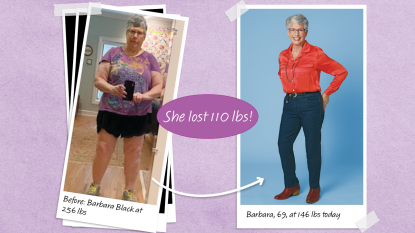Doctors Share the Best Ways to Relieve Sinus Pressure in the Ears + What You Should *Never* Do
Find out the right way to blow your nose (MDs say yes, it matters!)
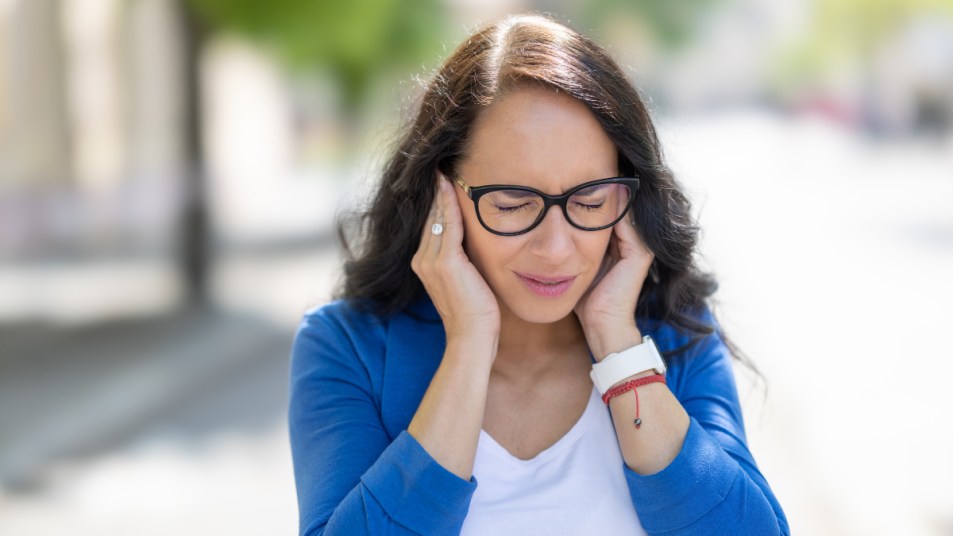
When you’re struck by a head cold, flu or allergies, symptoms can quickly intensify as congestion travels to the sinuses. The result: Swelling that feels like a pressure cooker inside your head, with the impact often felt most acutely in the ears. And between the ear fullness, pain, muffled hearing and bouts of dizziness, you likely want to know how to relieve sinus pressure in ears fast. Here, doctors’ best natural remedies — plus which you should avoid.
What causes sinus pressure in the ears?
“It’s basically a plumbing problem,” says Mache Seibel, MD. He explains that mucus, produced by cells in the nose, sinuses and lungs, serves an important function — it traps germs and particles of dirt. “When the membranes that line the nasal passages get irritated or swollen, the mucus builds up and doesn’t drain properly, so the pressure results. That can be very painful.” (Click through to learn if sinus infections are contagious.)
And if you’re finding sinus pressure harder to handle lately, there’s a reason for that. Dr. Seibel says that menopause can affect the intensity of sinus pressure. Why? Hormonal changes decrease both moisture and cell count in the nasal passages. This may weaken the nose’s natural barrier and filtering capabilities, making you more susceptible to sinus pressure that can be felt in the ears. “The nasal passages may feel dryer as a result of loss of estrogen, leading to more irritation,” he adds.
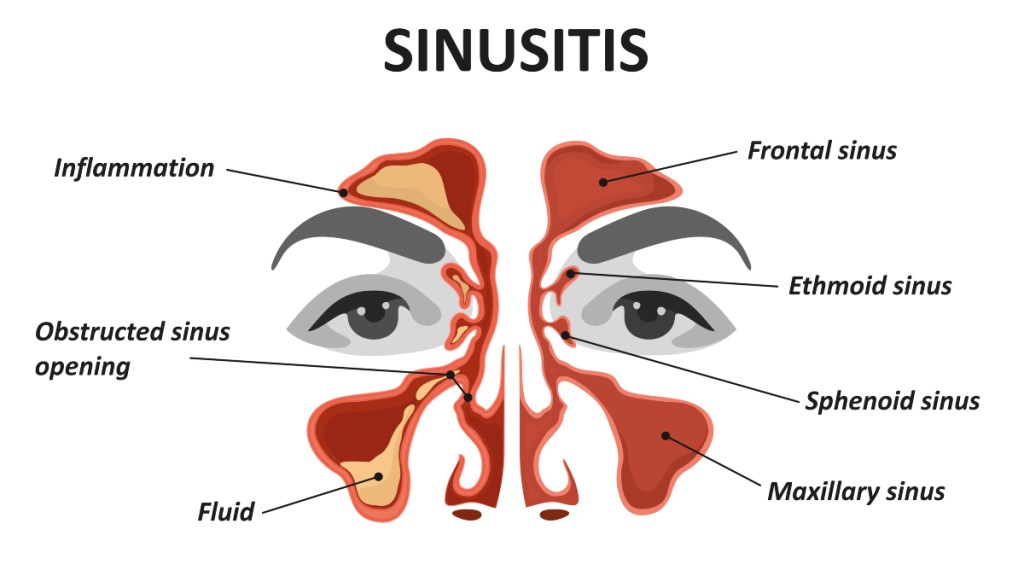
The good news is that there are natural remedies and over-the-counter options that can quickly relieve sinus pressure in the ears.
Related: Activating These 7 Sinus Pressure Points Gets Rid of Pain Quickly and Naturally, Docs Say
How to relieve sinus pressure in the ears
These simple home remedies are among the best ways to relieve sinus pressure in the ears naturally.
1. Run a hot shower
Steam inhalation is one of the easiest ways to relieve sinus pressure in the ears, and it can be conveniently done in your bathroom. Dr. Seibel suggests running a hot shower to generate steam, then standing close enough to comfortably inhale the steam for about 10 to 15 minutes. This can be repeated several times a day, especially when your ear pressure escalates to a crescendo of discomfort.
Alternatively, pour hot water into a bowl, then drape a towel over your head while leaning over the bowl. Inhale the steam for about 15 minutes for fast relief, Dr. Seibel says. “The steam really loosens up secretions, helping to moisten the nasal passages, thin out mucus and open up the ear canals,” he adds. (Tip: Consider adding a few drops of eucalyptus oil to your shower or steam. Click through to learn how eucalyptus oil helps you breathe easier.)
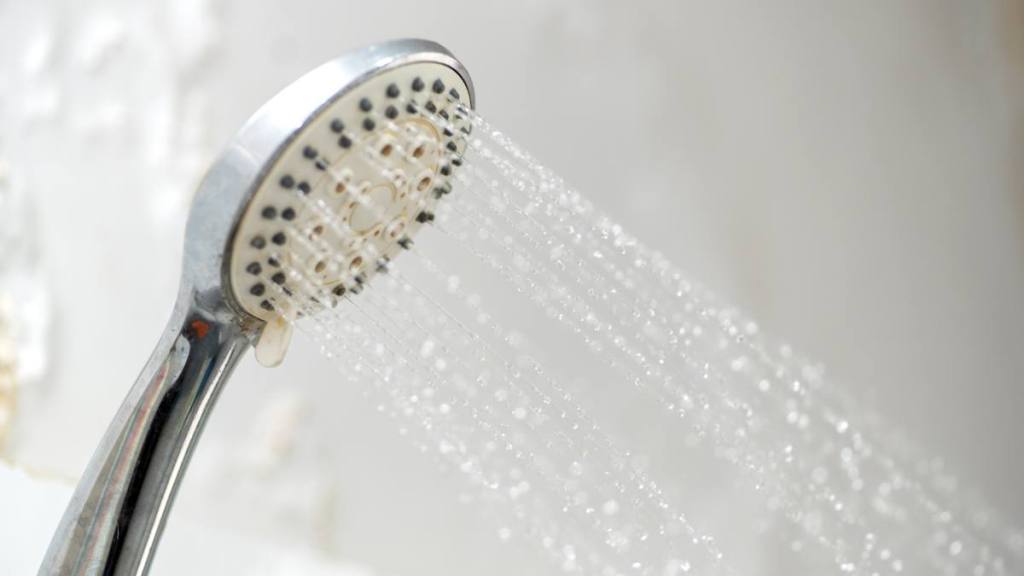
2. Flush your sinuses
Nasal irrigation, or rinsing your nostrils with a saline solution, is an age-old trick that can relieve sinus pressure in the ears and congestion. Joel Evans, MD, chief of medical affairs at the Institute for Functional Medicine, recommends using a neti pot. If you’ve never used one before, the simple device resembles a small teapot and has a long spout with Aladdin-like flair.
Initially, using a neti pot might feel a little awkward. But you’ll quickly get over that hump, especially when you start feeling immediate relief, says Dr. Evans. When used properly, it’s highly effective at clearing out nasal discharge, mucus, allergens and debris from the sinuses.
First, fill the neti pot with a saline solution – you can make this by mixing salt with warm, purified water. “You have to be careful, but you don’t have to be fearful,” Dr. Evans says. “It has to be done the right way, with a little bit of salt in the water. And the water either has to be boiled or sterilized.”
Then lean over your sink and tilt your head to one side. Place the spout of the pot in your upper nostril and gently pour the saline solution into it. The liquid will flow through your nasal passage and out of the other nostril. Tilt your head the other way and repeat the process with the opposite nostril. Dr. Evans suggests the NeilMed NasaFlo Neti Pot (Buy from Amazon, $14.67), which comes with packets of pre-mixed saline solution to make things easier.
Check out the video below for a quick how-to guide:
3. Blow your nose this way
While blowing your nose might seem straightforward, doing it correctly and intentionally can provide immediate relief. Dr. Seibel recommends this technique: “Block one nostril while blowing out through the other. Then switch and do the same with the other nostril.”
Expelling as much fluid as possible (one nostril at a time) is key to effectively draining the mucus, he adds. It’s important to avoid blowing too hard, though, as forceful blowing can aggravate your nasal passages and push bacteria-filled mucus back into the sinuses.
An easy way to know if you’re doing it right? Think of it like exhaling steadily and smoothly through your nostrils without straining. Try breathing out like a deep sigh with your mouth closed, Dr. Seibel says. Ease up if you sense discomfort or pain, as that could be a sign you’re blowing too hard.
Tip: Dr. Seibel also suggests spritzing each nostril with saline spray before blowing to help moisten and loosen the mucus.

Related: Doctors Reveal the 5-Minute Tricks That Stop a Runny Nose Fast
4. Drink up
Dr. Seibel notes that while nose blowing, nasal irrigation and steam therapy help relieve sinus pressure in the ears, they can also lead to dehydration, counteracting your recovery efforts. “Each time you use the bathroom, sneeze, or even just breathe, you’re losing fluids,” he notes. “That’s why staying hydrated, especially when you’re unwell, is crucial.”
One reason hydration is so important: It aids in loosening mucus secretions, making nasal breathing easier. Dr. Seibel recommends sipping at least eight 8-ounce glasses of water daily. Also smart: using a humidifier, which Dr. Seibel says increases moisture levels to improve sinus health and hydration. (Click through to learn why staying hydrated and using a humidifier are some of the best ways to prevent cold and flu.)

What to avoid with sinus pressure in the ears
Managing sinus pressure in the ears isn’t just about what to do — it’s also about knowing what not to do. First and foremost, steer clear of tobacco smoke, says Dr. Evans. The toxins in cigarettes can harm the cilia, the tiny hair-like structures in your nasal cavities responsible for moving mucus. When the cilia are damaged, it exacerbates sinus problems.
Air travel can also worsen sinus pressure due to the changes in cabin air pressure. If flying is necessary, Dr. Seibel recommends starting a decongestant a few days before your trip to prepare. While on the plane, try this: Close your mouth, pinch your nose shut, then gently exhale as if trying to blow your nose. This can help balance the pressure in your ears with the surrounding air, often providing relief as your ears “pop”.
Your diet is also key, since Dr. Evans points out that certain foods may trigger or worsen inflammation. “Dairy products make some people more mucousy and more prone to sinus buildup,” he says. “For that, it’s worth trying an elimination diet to see if avoiding foods like dairy, gluten, corn, or soy makes a difference. If someone has chronic sinus issues and lots of mucus frequently, it can be done anytime, not just in the setting of an acute problem.”
What is the best over-the-counter medicine for sinus drainage?
For more ways to relieve sinus pressure in the ears, consider these OTC remedies.
For pain relief: Try Tylenol (acetaminophen) and Advil (ibuprofen). “Tylenol or Advil can help not just with pain, but also in reducing the thickness and stickiness of the mucus,” says Dr. Evans. Advil has the added benefit of reducing swelling in the sinus tissues due to its anti-inflammatory properties, he adds.
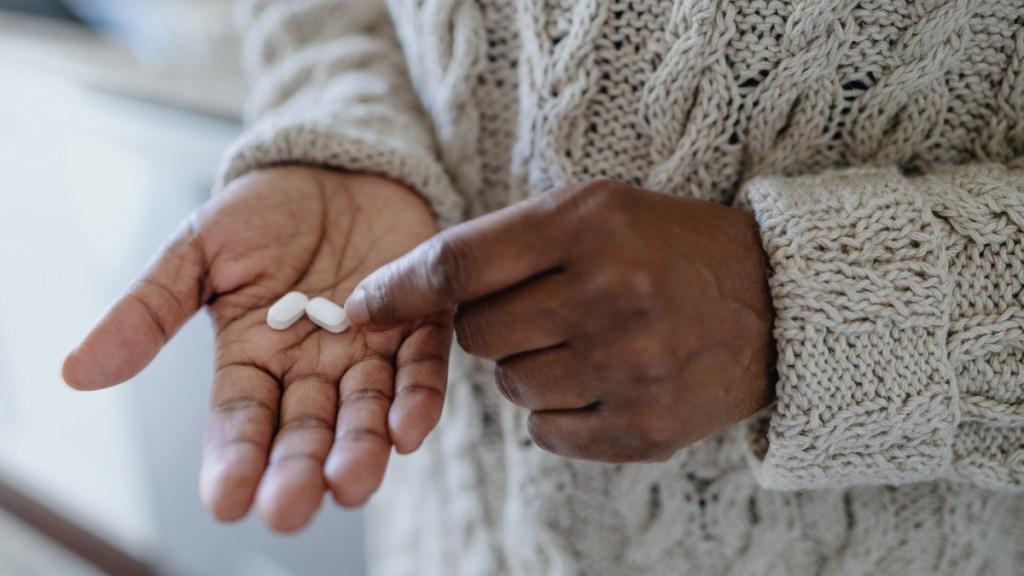
For allergy relief: Try Benadryl (diphenhydramine), an antihistamine which also acts as a drying agent by reducing mucus production.
For general congestion: Try Sudafed (pseudoephedrine), as it shrinks the blood vessels in the nasal passages, easing breathing and reducing pressure buildup, says Dr. Evans. “If you have high blood pressure, be cautious with Sudafed, as it’s a stimulant and can affect blood pressure. Antihistamines like Benadryl are safer as they don’t have stimulant properties.”
Nasal sprays such as Afrin also relieve the pressure, but Dr. Seibel cautions against overuse. “Rebound congestion” happens when your nose becomes less responsive to the spray after multiple uses, so you need to use more of it to breathe easier. “They work as a stimulant by constricting blood vessels in the nose,” Dr. Seibel says. “But if used for more than a few days, it can be hard to stop using them.”
When to see a doctor for sinus pressure in ears
Most sinus infections get better on their own. However, in cases of bacterial infections, treatment may require antibiotics or other medical care.
“If the clog in your ear becomes painful and you’ve been doing over-the-counter and home remedies and it’s not getting better, or you’re starting to lose your hearing, those are reasons to call the doctor,” says Dr. Evans. While there are multiple non-bacterial causes, such as ear wax buildup or swimmer’s ear, these symptoms might still indicate a health issue that requires evaluation. “That’s what the doctor will figure out.”
Adds Dr. Seibel: “If you are running a fever of 102 or 103°, if you have pain lasting for a week or if you also have a sore throat, a lot of dark green-type of drainage or a bad headache that doesn’t get better, it is time for a medical evaluation. The sinuses are near critical areas in the skull, so a prolonged infection should be taken seriously and addressed promptly.”
For more ways to ease colds, congestion and other sinus bothers:
Doctors Reveal the 5-Minute Tricks That Stop a Runny Nose Fast
How to Stop a Cold in Its Tracks: MDs Share Their Top Tips So You Can Feel Better Fast
Spicy Honey Is the Sweet-Hot Cure for Coughs, Congestion + Sore Throat, Say MDs
This content is not a substitute for professional medical advice or diagnosis. Always consult your physician before pursuing any treatment plan.













